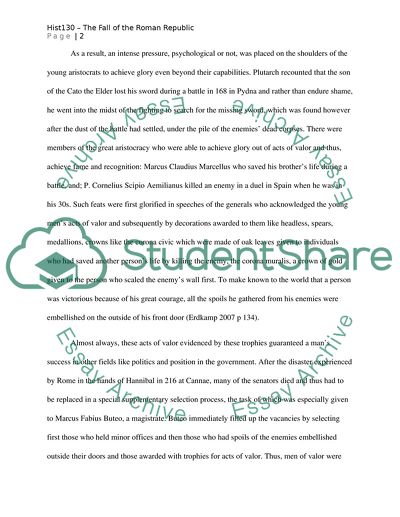Cite this document
(“The Fall of the Roman Republic Essay Example | Topics and Well Written Essays - 1250 words”, n.d.)
Retrieved from https://studentshare.org/history/1550665-the-fall-of-the-roman-republic
Retrieved from https://studentshare.org/history/1550665-the-fall-of-the-roman-republic
(The Fall of the Roman Republic Essay Example | Topics and Well Written Essays - 1250 Words)
https://studentshare.org/history/1550665-the-fall-of-the-roman-republic.
https://studentshare.org/history/1550665-the-fall-of-the-roman-republic.
“The Fall of the Roman Republic Essay Example | Topics and Well Written Essays - 1250 Words”, n.d. https://studentshare.org/history/1550665-the-fall-of-the-roman-republic.


